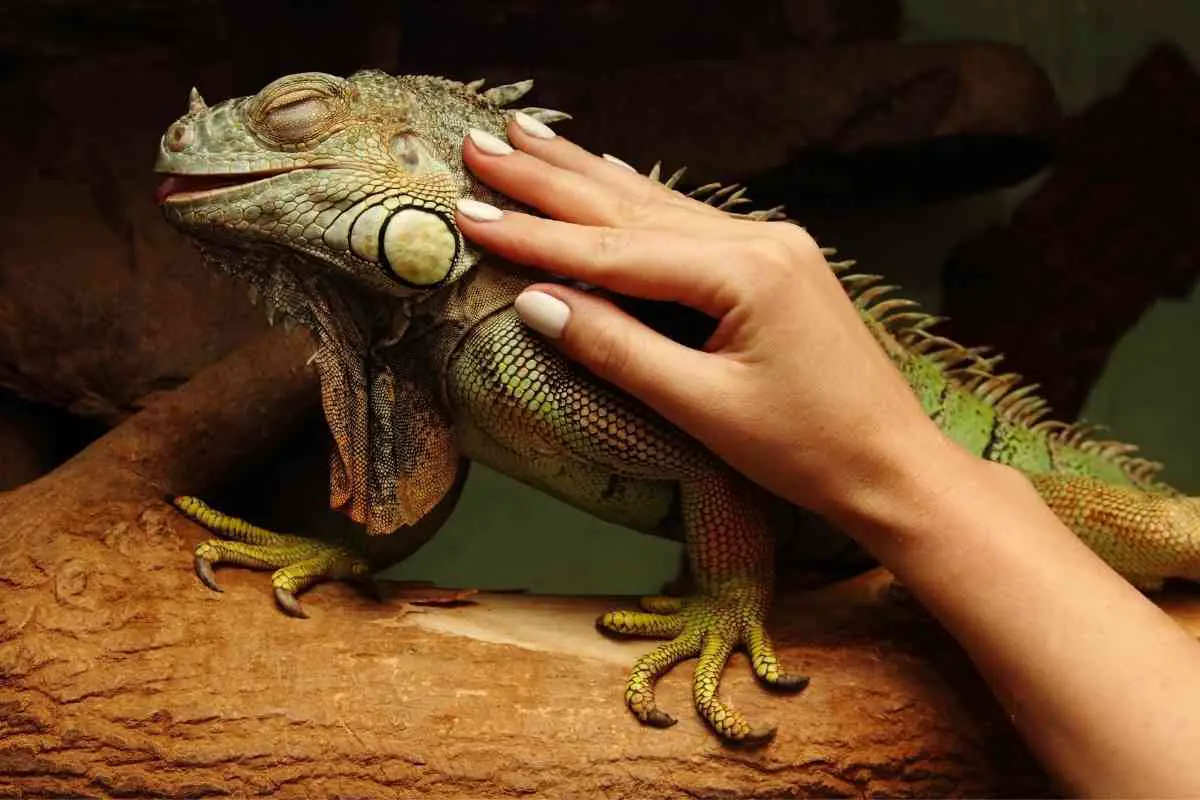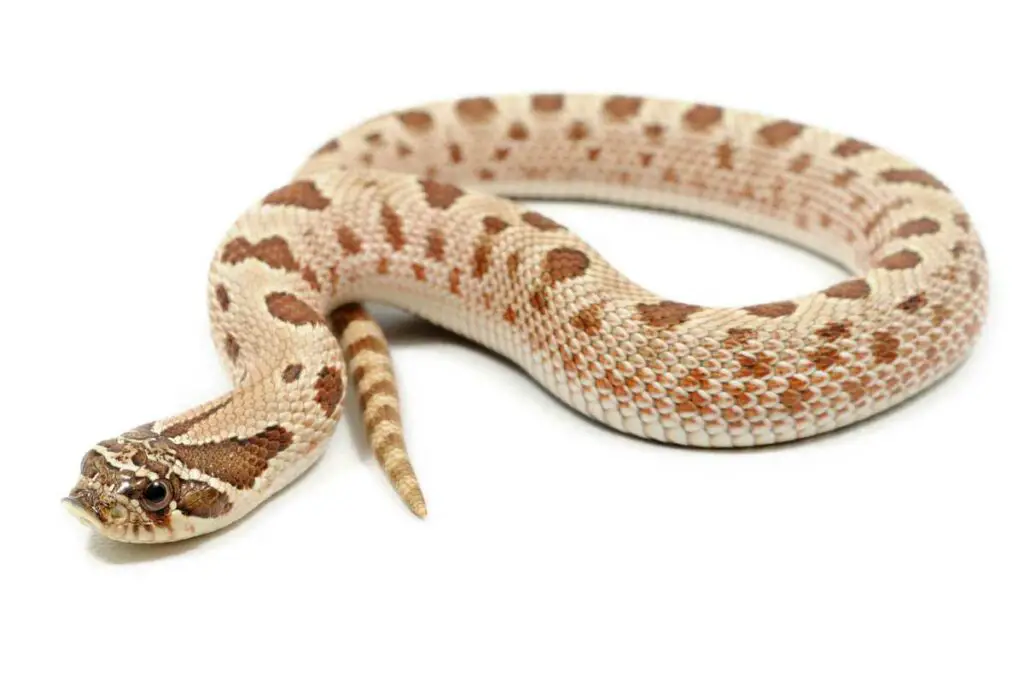Are you wondering what to feed your pet iguana? An iguana’s diet should be between 80-90% dark green leafy vegetables. Their diet should also consist of less than 20% fruit.
A good diet is essential in preventing health problems in iguanas.
Let’s take a look at the best ways to make sure your iguana is happy and healthy.
Table of Contents
What Do Iguanas Like to Eat?
Iguanas like to eat plants, which makes them herbivorous.
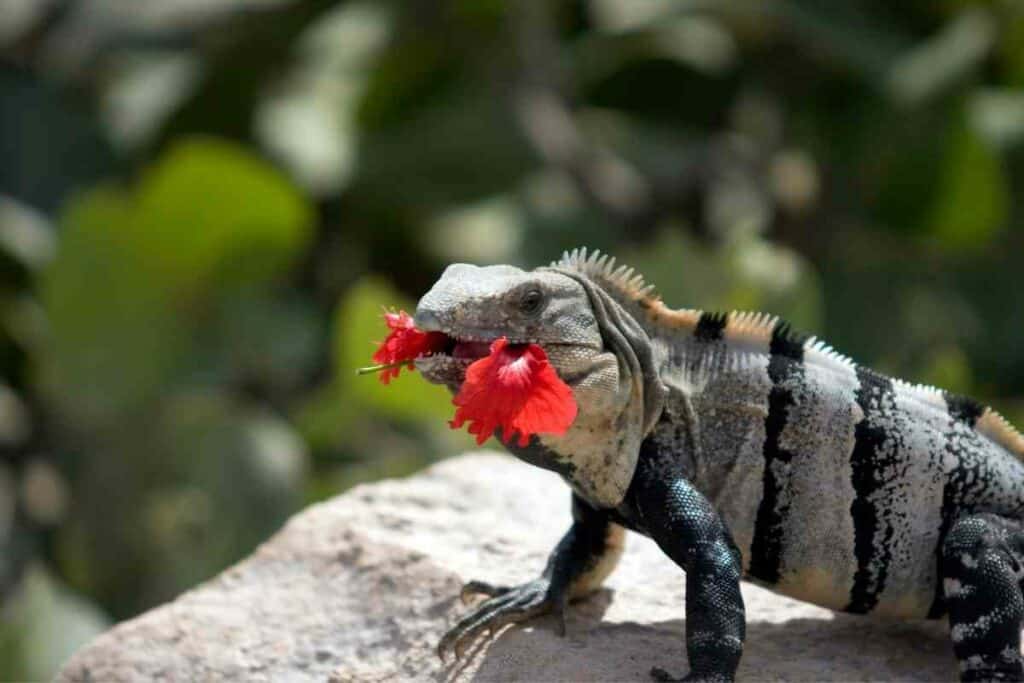
However, they really like the leaves of the plants, which makes them more specifically folivores.
Those not in captivity live on the leaves of trees and vines and a small number of fruits and flowers.
Keep In Mind: Those being kept as pets may need a little help supplementing their diet with foods that are specifically formulated for them.
What Kinds of Leafy Greens Should I Offer?
Your iguana needs her vitamins, so it’s best to avoid greens that aren’t high in nutrients.
These would include iceberg or head lettuce and celery. These vegetables contain mostly water and won’t offer much value to your iguana’s diet.
The vegetables that are good for your iguana are those that are rich in calcium.
These particular vegetables should make up between 40-50% percent of her diet.
They include:
- Mustard greens
- Beet greens
- Collard greens
- Turnip greens
- Kale
- Bok choy
- Alfalfa hay
- Parsley
- Romaine lettuce
- Swiss chard
- Escarole
- Kohlrabi
- Dandelion
Other vegetables that you can give for variety should include between 30-40% of your adult iguana’s diet.
These include:
- Bell peppers
- Cactus
- Green beans
- Broccoli
- Squash
- Sweet potato
- Sprouts
- Okra
- Parsnips
- Asparagus
- Cucumber
- Carrots
- Mushrooms
- Peas
- Corn
It’s important to know that while spinach, swiss chard, and beet greens are excellent sources of calcium, they should never be fed exclusively.
All of these greens contain oxalates, which bind to other dietary calcium, which prevents their absorption into the intestine. This can often lead to nutrient deficiencies.
Kale, Cabbage, and mustard greens should only be fed in small amounts as they contain chemicals that can lead to dysfunction of the thyroid or a goiter.
Should I Cook My Iguana’s Vegetables?
Your iguana’s vegetables can be offered raw or cooked, but raw is best for them.
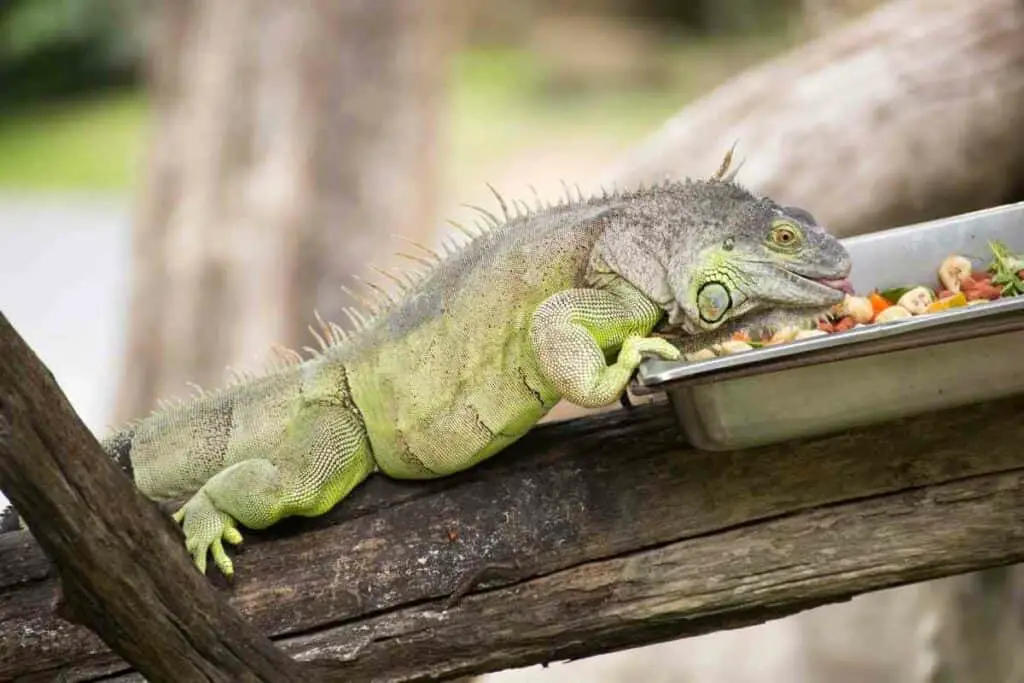
Cooking vegetables can often remove the essential nutrients.
What Fruits Can I Feed My Iguana?
Remember that ideally, less than 20% of your iguana’s diet should be fruit.
Most fruit is full of water without many nutrients, so they should be given sparingly.
A list of safe fruits to provide your iguana is:
- Pears
- Mangos
- Banana
- Star fruit
- Grapes
- Peaches
- Kiwis
- Guava
- Figs
- Melons
- Dates
- Blueberries
- Apricots
- Strawberries
- Raspberries
Are There Any Other Kinds of Food I Can Feed My Iguana?
As a special treat, iguanas love edible flowers.
Some examples are:
- Hibiscus
- Carnations
- Dandelions
- Roses
- Nasturtiums
If you have a young iguana that still has plenty of growing to do, you can give it legumes as long as it’s no more than 5% of its diet.
Some examples include:
- Boiled lentils
- Legumes
- Pinto beans
- Navy beans
- Kidney Beans
Does My Iguana Need Animal Protein?
Most foods that contain animal-based protein actually have too much protein for iguanas to eat on a daily basis.
They can be offered sparingly as long as they don’t make up more than 5% of their diet.
Some foods that can be offered are:
- Mealworms
- Crickets
- Hardboiled eggs
- Pinky mice
Does My Iguana Need Vitamin and Mineral Supplements?
The amount of supplementation needed by iguanas is dependent on their age.

Iguanas of all ages have a relatively high requirement for dietary calcium, more so than they do for phosphorus.
Veterinarians do recommend that very young iguanas should get a multivitamin supplement with vitamin D twice a week.
Sprinkling the food of an iguana that is still growing with calcium power 4-5 times a week is ideal.
The calcium powder needs to be specially made for reptiles, without phosphorus or vitamin D.
Best Practice: A fully grown adult iguana should have a calcium supplement sprinkled on their food once or twice a week. They should also have a multivitamin with vitamin D twice a month.
How Often Does My Iguana Need to Eat?
Ideally, most young iguanas should be eating daily.
Adult iguanas can also be fed daily as long as they are not overweight.
All food given should be fresh, and bowls should be cleaned daily.
Do I Need to Give My Iguana Water?
Absolutely. Your iguana should have access to fresh, clean water at all times.
Iguanas not only drink their water, but they love to bathe in it as well.
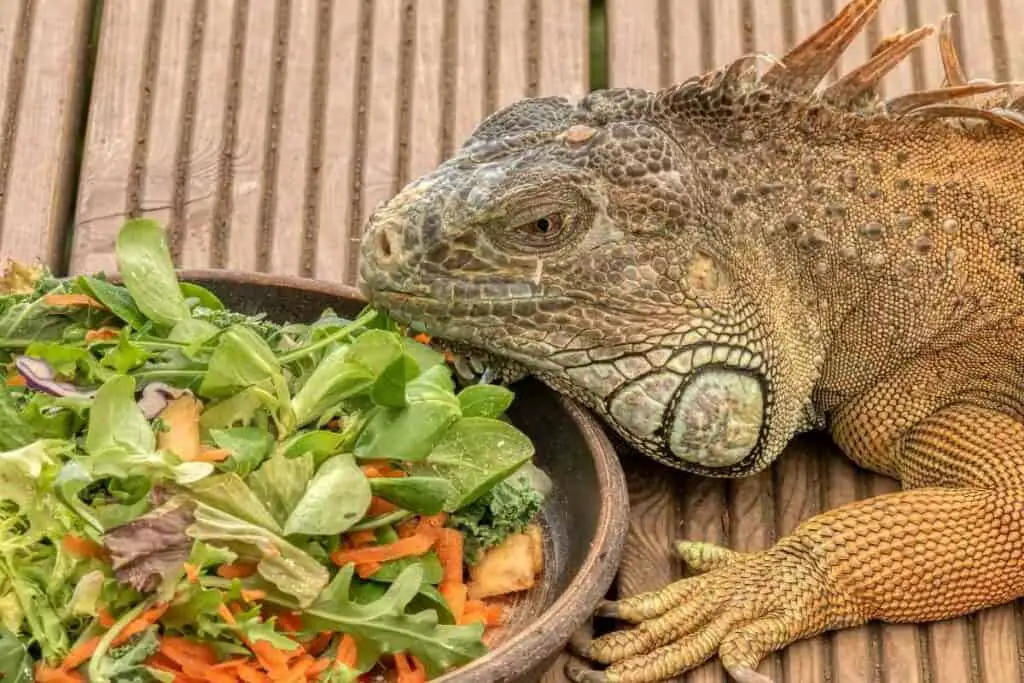
Most reptiles absorb water through their skin, so drinking and bathing in water are essential to keep their hydration levels up.
Iguanas will also poop in their water, so make sure it’s changed at least once a day.
Give your iguana water in a bowl that is reasonably heavy and can’t be tipped over easily.
Even Better: Misting your iguana’s enclosure with water several times a week can also help to keep her hydrated. This is especially important during the winter because the air tends to be drier and colder.
Is There Anything Else I Should Know?
If your pet iguana is fed an improper diet, it can lead to many health problems and stunt its growth.
It’s essential to keep up with its nutrition and ensure that you run everything by your veterinarian to be sure your iguana stays happy and healthy.

